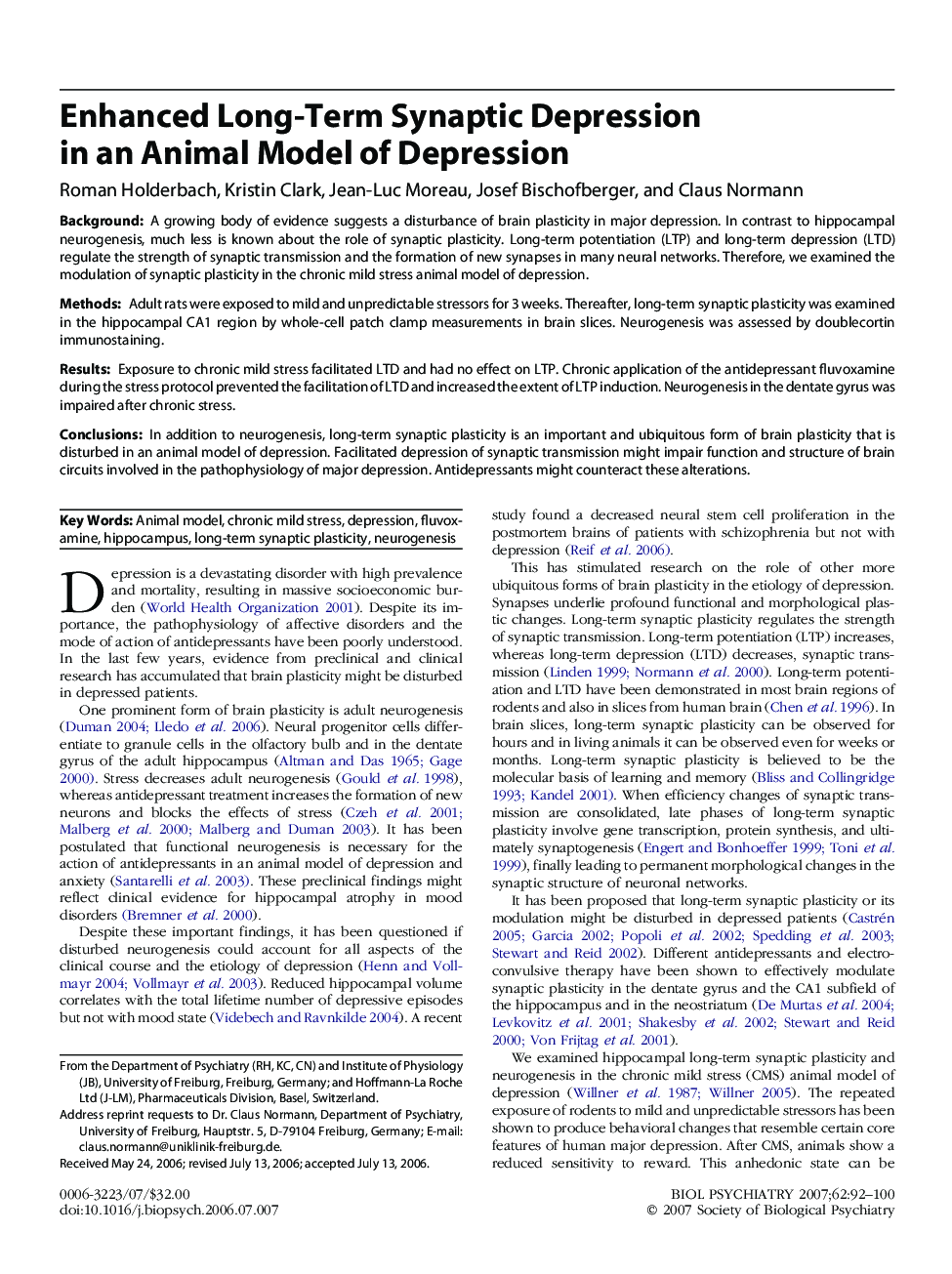| Article ID | Journal | Published Year | Pages | File Type |
|---|---|---|---|---|
| 4180427 | Biological Psychiatry | 2007 | 9 Pages |
BackgroundA growing body of evidence suggests a disturbance of brain plasticity in major depression. In contrast to hippocampal neurogenesis, much less is known about the role of synaptic plasticity. Long-term potentiation (LTP) and long-term depression (LTD) regulate the strength of synaptic transmission and the formation of new synapses in many neural networks. Therefore, we examined the modulation of synaptic plasticity in the chronic mild stress animal model of depression.MethodsAdult rats were exposed to mild and unpredictable stressors for 3 weeks. Thereafter, long-term synaptic plasticity was examined in the hippocampal CA1 region by whole-cell patch clamp measurements in brain slices. Neurogenesis was assessed by doublecortin immunostaining.ResultsExposure to chronic mild stress facilitated LTD and had no effect on LTP. Chronic application of the antidepressant fluvoxamine during the stress protocol prevented the facilitation of LTD and increased the extent of LTP induction. Neurogenesis in the dentate gyrus was impaired after chronic stress.ConclusionsIn addition to neurogenesis, long-term synaptic plasticity is an important and ubiquitous form of brain plasticity that is disturbed in an animal model of depression. Facilitated depression of synaptic transmission might impair function and structure of brain circuits involved in the pathophysiology of major depression. Antidepressants might counteract these alterations.
